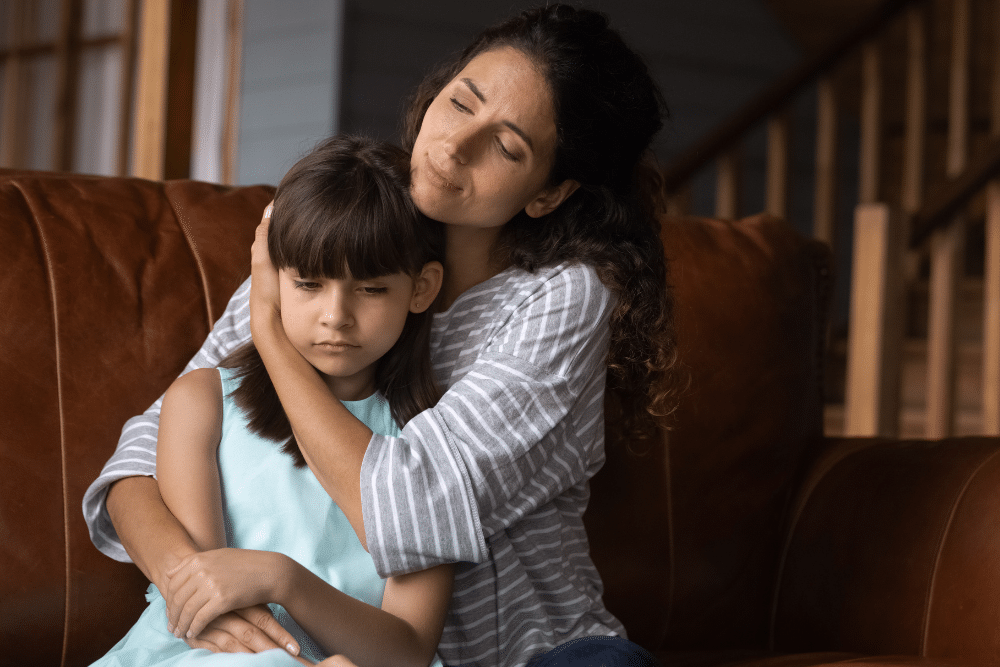
Is your child experiencing anxiety? Fear and anxiety are very common in children and adults of all ages and can be managed through a variety of methods, from behavioral shifts to medicine. Today we’re going to give you our top tips on how to guide your child through mild to moderate anxiety.
Understand and validate their anxiety
It’s easy to dismiss a child’s expressions of anxiety as an overreaction or say they’re upset for no reason. You might even say something like, “Try being an adult. Then you’ll know what actual problems are.” Try to understand that for a child, who is unable to self-regulate, their fears and anxiety are very real. Try to ask questions in a calm, non-judgmental way, and express that you will be there to support them as they work through their fear. Avoid trying to eliminate or solve the problem yourself as this might work in the short term but doesn’t do your child any favors in the long term when they are dealing with anxiety or problems as an adult. Instead, work with your child to create a plan to cope ahead for when they’re feeling anxious.
Plan and cope ahead
A good goal is to guide your child to learn healthy ways to cope with anxiety and fear. A few examples might be taking deep breaths, a hug, or taking a moment away from the situation that is causing anxiety until they are able to calm down. Work with your child to understand these methods while they are feeling calm and reinforce them often because that will be a lot more effective than when your child is anxious. At first, you will have to guide these coping skills, but the goal is for your child to learn to self-regulate and use these tools without your prompting.
Create a bedtime routine
Bedtime can be stressful, especially for younger kids. Try to create clear expectations and routines to help develop a sense of stability and security. You might spend a few minutes reading together or sing a special nighttime song, for example. Sleep experts recommend avoiding screens or bright lights for at least 1-3 hours beforehand for the best results. When children are able to get the right amount of sleep, this can really improve their ability to self-regulate and can make managing anxiety throughout the day much easier.
Encourage the process, not results
Most of us are programmed to say things such as, “Great job,” “Wow, that’s a pretty painting,” or, “You won the game! You’re so good,” without even thinking. Research shows that praising results can actually cause children to become less interested in the actual process, and instead become fixated on receiving more praise. What does this have to do with anxiety? When children feel pressure to succeed, they might procrastinate or experience anxiety around being perfect. Instead, try to encourage the effort your child makes and help them accept that failure is a part of the process. For example, “What are you painting,” “Wow, you won the game? How did that feel?” etc.
Do you agree with our tips? Are there any that you would add? Leave a comment below!
These tips were created to manage mild to moderate anxiety, and might not be sufficient for a child experiencing severe anxiety or mental illness. If after adopting these tools your child’s anxiety does not improve, or if you have specific concerns, consult a specialist, such as a psychologist or your child’s doctor.
Please note: if your child experiences abrupt changes in emotions or personality, such as becoming extremely withdrawn for seemingly no reason, it might be necessary to consult a specialist to ensure healthy development and assess possible trauma.



